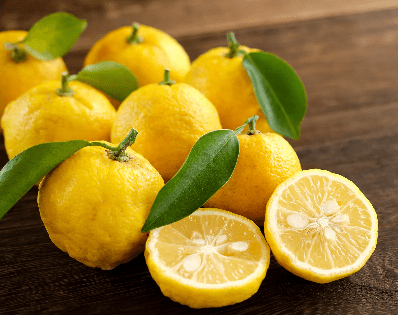Yuzu is a citrus fruit native to East Asia and has become increasingly popular in recent years due to its unique flavor and aroma. Yuzu is high in vitamin C and other antioxidants, making it a great addition to your diet. It is also rich in fiber, calcium, and potassium, making it a great choice for those looking to boost their overall health. Yuzu has been said to have anti-inflammatory, antibacterial, and antifungal properties, making it a great choice for those looking to naturally boost their immune system. Additionally, yuzu is known to have positive effects on cholesterol levels, blood pressure, and blood sugar, making it a great addition to any heart-healthy diet. Finally, yuzu is a great source of dietary fiber, which helps to keep you feeling fuller longer and aids in digestion.

Health Benefits
- High in Vitamin C: Yuzu is high in vitamin C and other antioxidants, making it a great choice for those looking to boost their overall health.
- Anti-Inflammatory Properties: Yuzu has been said to have anti-inflammatory properties, making it a great choice for those looking to naturally boost their immune system.
- Promotes Heart Health: Yuzu is known to have positive effects on cholesterol levels, blood pressure, and blood sugar, making it a great addition to any heart-healthy diet.
- Rich in Fiber: Yuzu is a great source of dietary fiber, which helps to keep you feeling fuller longer and aids in digestion.
- Aids in Weight Loss: The high amount of dietary fiber found in yuzu can help to promote weight loss and keep you feeling fuller longer.
Nutrition Facts
- Serving Size: 1 cup (150 grams)
- Calories: 71
- Total Fat: 0.3 grams
- Saturated Fat: 0.1 grams
- Polyunsaturated Fat: 0.1 grams
- Monounsaturated Fat: 0.1 grams
- Cholesterol: 0 milligrams
- Sodium: 4 milligrams
- Potassium: 363 milligrams
- Total Carbohydrate: 18 grams
- Dietary Fiber: 3.3 grams
- Sugars: 10 grams
- Protein: 1.5 grams
- Vitamin A: 0%
- Vitamin C: 77%
- Calcium: 3%
- Iron: 4%
